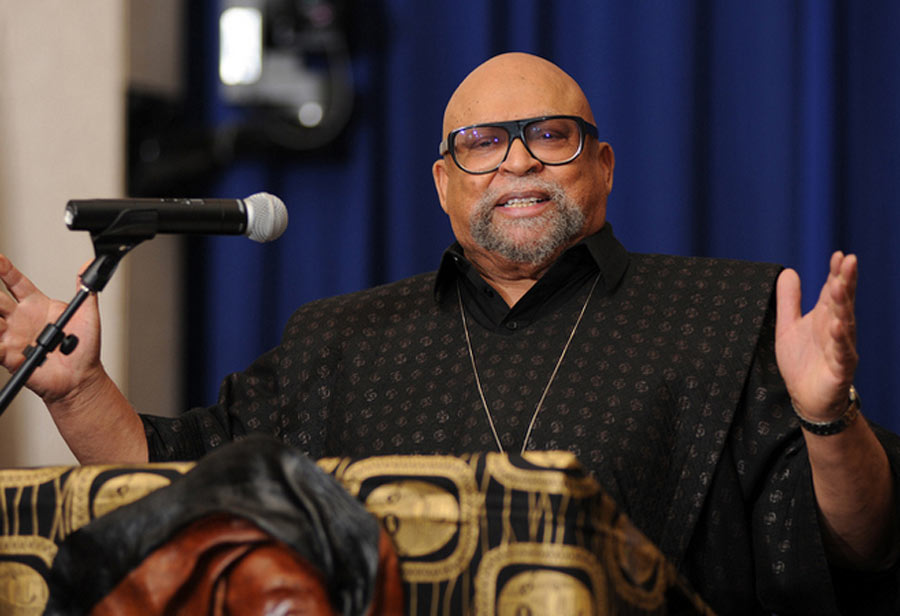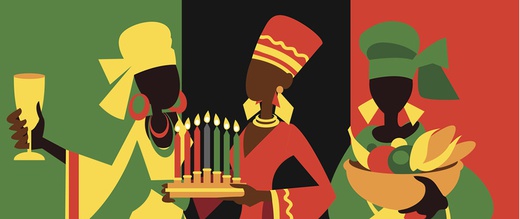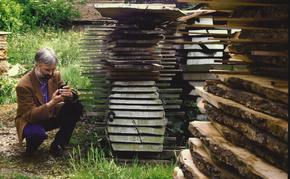The views expressed in our content reflect individual perspectives and do not represent the authoritative views of the Baha'i Faith.
Have you ever wondered, when someone says “Merry Christmahannukwanzadan,” what they could possibly mean?
That mash-up all-purpose holiday greeting, intended to cover Christmas, Chanukah, Kwanzaa and Ramadan, tries—in a tongue-in-cheek or at least a tongue-twisting way—not to leave anyone or any holy day out. In the previous essay, we covered Chanukah and Christmas. Ramadan, of course, is the period of fasting in Islam, which happens at various times of year. But what about Kwanzaa?
Kwanzaa, the brainchild of Dr. Maulana Karenga, Professor and Chair of Africana Studies at California State University, Long Beach, is, according to Karenga’s official Kwanzaa website,
…an African American and Pan-African holiday which celebrates family, community and culture. Celebrated from 26 December thru 1 January, its origins are in the first harvest celebrations of Africa from which it takes its name. The name Kwanzaa is derived from the phrase “matunda ya kwanza” which means “first fruits” in Swahili, a Pan-African language which is the most widely spoken African language.
Kwanzaa is:

Maulana Karenga
a time of ingathering of the people to reaffirm the bonds between them;
- a time of special reverence for the creator and creation in thanks and respect for the blessings, bountifulness and beauty of creation;
- a time for commemoration of the past in pursuit of its lessons and in honor of its models of human excellence, our ancestors;
- a time of recommitment to our highest cultural ideals in our ongoing effort to always bring forth the best of African cultural thought and practice; and
- a time for celebration of the Good, the good of life and of existence itself, the good of family, community and culture, the good of the awesome and the ordinary, in a word the good of the divine, natural and social.
Like so many other holidays, Kwanzaa celebrates light. Similar to the lighting of the menorah at Chanukah or the lights on a Christmas tree, a special candle holder called a kinara is lit each night. One black (for the people) candle stands in the center of the kinara. To the left are three red (for their struggle) and three green (for the future and the hope that arises from their struggle) on its right. A different candle is lit each night, corresponding with the seven principles of Kwanzaa:
- Umoja: Unity – Unity of the family, community, nation and race
- Kujichagulia: Self-Determination – Being responsible for your own conduct and behaviour
- Ujima: Collective work and responsibility – Working to Help each other and in the community
- Ujamaa: Cooperative economics – Working to build shops and businesses
- Nia: Purpose – Remembering and restoring African and African American cultures, customs and history
- Kuumba: Creativity – Using creating and your imagination to make communities better
- Imani: Faith – Believing in people, families, leaders, teachers and the righteousness of the African American struggle
What do all of these holidays have in common? They say that freedom is worth the struggle, that we need to develop our character and become more giving and more loving, and that just as the candles and electric bulbs light our way, so should we shine and become guiding lights.
Why do so many holidays emphasize light and love, and encourage us to love and be loving? The Baha’i teachings explain:
Love is heaven’s kindly light, the Holy Spirit’s eternal breath that vivifieth the human soul…. Love is the light that guideth in darkness, the living link that uniteth God with man, that assureth the progress of every illumined soul. – Abdu’l-Baha, Selections from the Writings of Abdu’l-Baha, p. 27.
He urged us:
O ye beloved of the Lord! Strive to become the manifestations of the love of God, the lamps of divine guidance shining amongst the kindreds of the earth with the light of love and concord. – Ibid., p. 28.
When we learn to love and be a light unto all the “kindreds of the earth” we come to understand the true meaning and importance of the concept of the oneness and unity of the human race. Indeed:
So powerful is the light of unity that it can illuminate the whole earth. – Baha’u’llah, Gleanings from the Writings of Baha’u’llah, p. 288.
So when we celebrate any of the holy days in the holiday season, let us each become a beacon of light, a harbinger of peace, a diffuser of love. Let’s convince ourselves to:
Let there be peace on earth, and let it begin with me. – Title of song written by Jill Jackson Miller and Sy Miller in 1955 for the International Children’s Choir

















Comments
Sign in or create an account
Continue with Facebookor